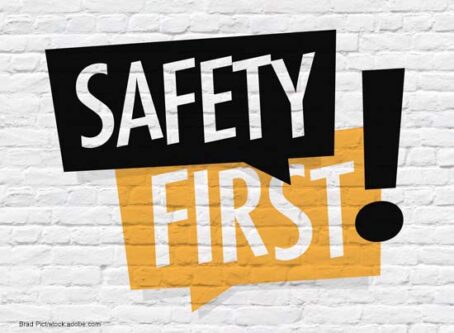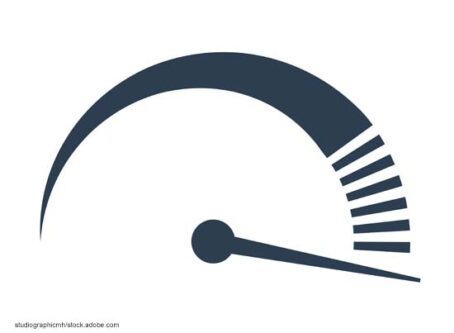LISTEN ONLINE: What does OOIDA do for you? A lot and a lot of it is behind the scenes

OOIDA Manager of Government Affairs Mike Matousek told Land Line Now that OOIDA’s Washington, D.C., staff has a lot irons in the fire. “Our team in D.C. is constantly on the Hill or in DOT offices meeting with people pushing our issues,” Matousek says. (Photo by Jami Jones)
If a tree falls in the woods and no one is around to hear it, does it make a noise?
Of course it does.
If the Owner-Operator Independent Drivers Association fights an issue and successfully kills an effort for a new law or regulation, did the Association do anything for truckers?
Of course it did.
“There are dozens of issues that we’re working on at any given time, whether it’s with lawmakers in D.C. or regulators within FMCSA,” OOIDA Manager of Government Affairs Mike Matousek told Land Line Now.
“We don’t always talk about some of it, and a lot of it is behind-the-scenes stuff that we prevent … from actually moving forward in the process. Things we don’t like.”
While eyes in the industry were universally trained on the hours-of-service listening sessions and advance notice of proposed rulemaking, OOIDA continued its advocacy efforts on not only HOS but also a host of other issues.
That takes a concerted effort and a methodical plan of attack that is diversified, Matousek explained.
“You have to work both sides of the Capitol. And when I say that I mean the House and the Senate, both sides of the aisle, Republican and Democrat. There are different committees of jurisdiction that we work with all the time. Our team in D.C. is constantly on the Hill or in DOT offices meeting with people pushing our issues,” Matousek said. “It really is endless.”
Even in today’s volatile political climate, Matousek said it is critical for the Association to work with lawmakers from both parties if there is any hope in getting something accomplished. There is no picking favorites.
“We work with people on both sides of the aisle that have a track record of supporting small-business truckers. There are great members of Congress on both sides of the aisle. Some are better on issues than others,” he said. “There are some issues that Republicans are good on and some issues that Democrats are good on.”
It also takes a proactive attack on certain issues – even if it seems like it’s a “dead” one. Depending on which party is in power can place certain issues on a back burner or ignite a previously dormant issue, Matousek said.
For an example, he said that if the Republicans lose control of Congress the F4A battle over meal and rest breaks will likely become a dead issue for the time being. But that could also mean with Democrats in control that the possibility of increasing insurance minimums could boomerang back into play.
“Just because it’s not an issue, and I’ll use insurance minimums (as) a good example, just because it’s not an issue now doesn’t mean we’re not taking meetings on it, making sure that members of Congress know our position,” Matousek said.
That’s just at the federal level too. OOIDA also is constantly active on issues at the state level, which gets even trickier when you consider the number of states, number of differing issues, and the resources available to OOIDA.
“We work on quite a few issues across the country. We have to, from a resources perspective, pick and choose our battles. But we work on things at the state level (on issues like) nonconsensual towing, lane restrictions, differential speed limits and CDL training, which is an issue that recently was addressed in California,” Matousek said. “Other states are looking at all kinds of crazy stuff as well, so there’s always something to do.”
As important as it is for OOIDA to remain active, Matousek said members play a critical role in the Association’s advocacy efforts.
“When I talk to our members via email or on the phone, one of the things I tell them if they hear about an issue and call us is that we can’t work on all of them, but a lot of the stuff we work on are things that we hear from our members about,” he said. “We have a lot of great advocates, a lot of grassroots support from not only our board members but from all of our members.”
Whether Congress is in session or not, no matter if a big issue like hours of service is dominating headlines and conversation, OOIDA has a lot going on.
“We get questions occasionally via email from members saying, ‘Hey, what else are you guys working on,’ and it’s hard to answer that via email because there’s just so much to put in there. So I always encourage people to call me if they want to talk about any particular issue,” Matousek said. “There’s just a lot there, and we enjoy doing it.”









